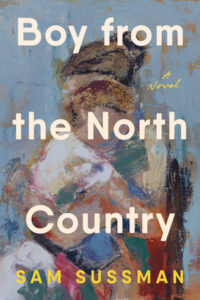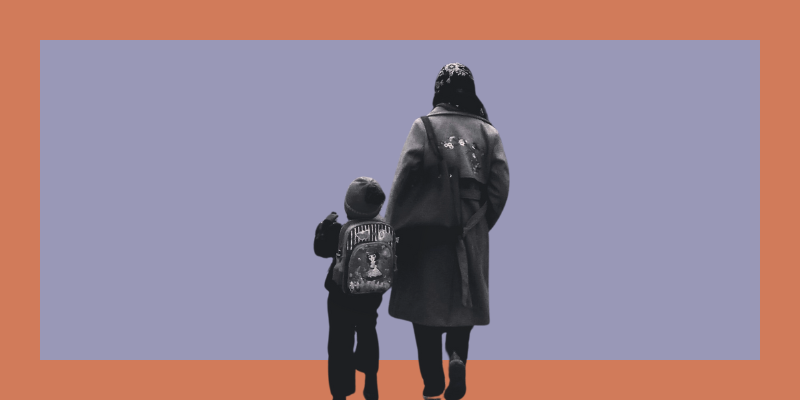My mother loved stories. When I was young, she read to me on summer afternoons in a hammock that swayed between pine trees. I remember her voice changing tone and temperament as the characters appeared before my eyes. I was enchanted by the worlds she conjured. Arthur drawing the sword from the stone. Harry Potter discovering he is a wizard.
Article continues after advertisement
As I grew up, literature remained our love language. When my mother found me writing poetry as a teenager, she gave me her copy of Rilke’s Letters to a Young Poet. When I complained that I couldn’t wait to escape our dull life in the woods in upstate New York, she gave me Stendhal’s The Red and the Black, the nineteenth century novel of a young man from the provinces determined to find a more enchanting life in Paris.
Perhaps it was inevitable that my first novel would be about her.
I’ve learned to expect a skeptical look when I say that I’ve written a novel about my mother.
Mothers undermine one of the most enduring fictions in our society: that we are each an atomistic self, moving through life independently rather than interdependently.
The look asks: Aren’t you a bit old for that? How could a thirty-four year old man think the most compelling subject for a novel is his own mother? Surely, the look suggests, my choice betrays a Freudian complex best left uninterrogated.
It’s not surprising that a young straight male novelist should receive this response. Memoirs and autobiographical novels written by women and gay men about their mothers have been rightfully celebrated as vital contributions to literary culture. But there have been precious few contemporary works by straight men about their mothers.
The image of the great American novelist in the twentieth century was masculine: Hemingway and his bulls, Mailer and his fists, Roth and his libido. Today’s literary culture may be less aggressively male, but still lives in the shadow of writers whose work, in the words of the scholar Sara Martín Alegre, is defined by “candid explorations of the less wholesome aspects of the male soul and body.”
This reflects broader sexism in our culture that stigmatizes feminine emotion, including intimacy between mothers and sons. Stereotype suggests that men who are too close to their mothers must lack strength, independence, and ambition.
I understand how this culture of shame can lead boys and men to feel embarrassed by their mothers. I used to be embarrassed by mine.
Growing up, I learned early that she could be a source of social embarrassment. She was a free spirit who taught me to love our chickens and talk about my feelings. At school, I was bullied by other boys for not conforming to masculine expectations. I learned not to speak too warmly about my mother, never to let anyone know that I enjoyed knitting with her, or that I loved our animals so much that I had become a vegetarian at four.
In middle school I was often beaten up by other boys. I began biking to the gym every day, transforming my scrawny body until I was competing on stage as a competitive bodybuilder. When my mother drove to the gym to pick me up, I insisted that she call me from the parking lot so that the other guys in the gym wouldn’t see her. I was embarrassed by the warmth with which she smiled at me.
Mothers undermine one of the most enduring fictions in our society: that we are each an atomistic self, moving through life independently rather than interdependently. In a culture that lionizes male strength, what could be more embarrassing than to admit that our lives have been made possible by the nurturing love of another person—that we come from another body?
Stories, my mother believed, have healing power.
We need literature that helps men understand that masculine strength is rooted in vulnerability to those with whom we share our lives, gives men permission to express the fullest range of human emotion, and imagines how men can flourish in a society of equals. Yet observers have remarked how rarely heterosexual men write about sex or dating, or even our emotions.
There is no single story of the mother-son relationship. Mothers and sons embody the full spectrum of human flaws. Our relationships are various, complex, and fraught. I am not suggesting a literary agenda of sentimentalism, but rather more intimate attention to stories centered on of the foundational human relationships.
The stigmas of the mother-son relationship belong to a bygone world. Boys and men who have closer relationships with their mothers are more emotionally open, form stronger friendships, achieve higher academically, and are more likely to seek needed mental health care. In 2013, my mother sent me the longest study ever conducted on human happiness, which found that one of the variables most associated with male happiness is a positive relationship with one’s mother. I still have that email saved and cherished. It reads: “Can’t wait to see you tuesday love you love you love you, Mom.”
By college, my embarrassment had given way to a growing adult friendship with my mother. When I came home, we would spend evenings talking about the writers I was reading. She could talk about Sartre as easily as she could Harry Potter, Carson McCullers with as much joy as Roald Dahl. Between breaks at work, she would find me in the living room, sit cross-legged on the floor, and ask about whatever I was reading or writing. She was my favorite person to go with to the theater. The person whose judgment I trusted most with my first drafts and romantic relationships.
Stories, my mother believed, have healing power. The story we choose to tell of our life, she believed, has a profound effect on our happiness and our health. She worked as a holistic health practitioner, drawing on training in psychology, nutrition, meditation, and a wide range of wellness practices to help other people develop more intentional relationships to their health. She taught that an essential part of our well-being is the story we tell of our lives. She believed that a negative story of the self undermines our relationship to our bodies, diets, selves, and other people, while a positive story of self nourishes all aspects of our well-being.
I didn’t know how to find my mother’s strength. But I hoped that by writing about her life, I might learn how to live my own.
She believed that stories bind us to other people, too. She liked to quote Mister Rogers: “There isn’t anyone you couldn’t learn to love once you’ve heard their story.” In an essay she wrote on Valentine’s Day, 2013, “Thoughts on Love From a Happy Woman,” she said:
That is true, in my experience. I listen to people’s stories all day long, and my heart fills with love for each of them. Whatever they are going through, for whatever questions they are seeking answers, I recognize that it takes incredible vulnerability to ask for help, and I am so humbly fortunate that they are asking me.
As we drew closer she began to confide more about her life before I was born. She told me she had once dreamed of becoming a writer, but had dropped out of college after she was sexually assaulted. She had left for New York and immersed herself in 1970s bohemia as an actress and painter, playing in productions of Ibsen and Chekhov and studying with the eccentric Ukrainian-Jewish painter Norman Raeben, the youngest child of Sholem Aleichem. She told me she had lived through an abusive marriage and sexual violence that led her away from the stage and into her life’s work in her holistic health practice. She had chosen to make sense of her pain by helping other people—especially women— begin to heal their own traumas. She had found a higher calling than her youthful artistic ambitions, even as she gave her love of literature and storytelling to me.
The more I understood my mother, the more grateful I felt to have been raised by a woman who found her strength in transforming suffering into love.
When I was twenty-six she was diagnosed with ovarian cancer. I came home to be with her.
We spent evenings smoking her medical marijuana and talking about our lives. At night, I often read her Harry Potter, hoping the story might ease her pain and let her fall asleep. One night, I read her favorite passage aloud:
“Love as powerful as your mother’s for you leaves its own mark. To have been loved so deeply, even though the person who loved us is gone, will give us some protection forever.”
She died seven days later.
Walking dazed through the woods behind our house that autumn, I felt paralyzed by grief. I no longer understood how to live. I knew I had to draw strength from all the ways she had transformed her suffering into love.
One day I walked into my mother’s office, sat at her desk with its view of the woods she loved, and began to write a novel about her life.
I didn’t know how to find my mother’s strength. But I hoped that by writing about her life, I might learn how to live my own.
__________________________________

Boy from the North Country by Sam Sussman is available from Penguin Press.
